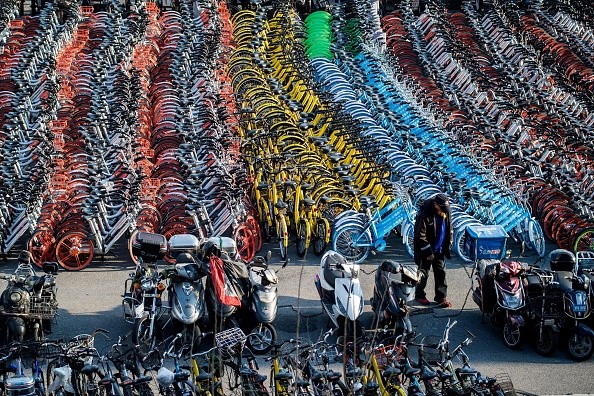China's booming bike sharing startups raised generous financing from tech giants and big-name venture capitalists, which made a polarizing effect to Chinese bicycle manufacturers.
Mobike is the leading player in the booming bike-sharing market, which secured $215 million in a financing round led by Tencent.
The new investment came shortly after Mobike signed an exclusive strategic partnership with Foxconn Technology group last month. This partnership will help double its annual bicycle production capacity to more than 10 million units.
Ofo, Mobike's competitor, has connected more than 1 million bicycles with more than 20 million registered users since June 2015. It announced this month that it has completed a 3.1 billion yuan D-round financing that is led by global investment institution Digital Sky Technology.
Mobike and Ofo simplified the traditional bike rental process with mobile applications. Users register themselves and pay deposits in their smartphone using their mobile app. Users will also have the convenience to park their bike almost anywhere in public after use.
Big companies supply bicycles to both of these startups. Given this, small-time bicycle manufacturers are dying due to lack of orders.
One of the big-time suppliers of bicycles to the startups is Flying Pigeon. According to Zhang Jinying, the general manager of Flying Pigeon, they are scheduled to produce 900,00 bikes in March, half of which will go to bike-sharing startups.
Fushida, another big-time supplier, is one of the suppliers of Ofo. According to its general manager, Ofo has ordered about 800,000 bikes to be delivered in April.
Liu Xuequan, director of the bicycle industry association in Tianjin, China's largest bicycle manufacturing base, said that as the bike-industry grows, it will deal a huge blow to the traditional bike market.
"The big companies are doing reasonably well at this stage, but the smaller ones are definitely suffering. Dozens of small and medium bike-makers have quite a few orders," Liu stated.



























